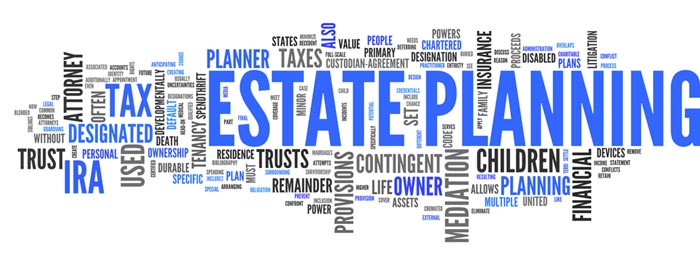Estate Planning
The Estate Plan: Foundation for Life … and More

by Daniel Miller, Esq.
What do the words “wills,” “trusts,” “estates,” and “health care directives” mean to you? Do you envision useful tools which help you protect your family and your wishes if death or incapacity strikes? Or do you brush off these terms believing they are only important for the super-rich or elderly?
October 17th-23rd marks National Estate Planning Awareness Week, which is a key reminder of just how important estate planning is for everyone. Whether you are a 20-something new parent just starting out, a wealthy entrepreneur or a senior citizen relying on others for long-term care, estate planning provides a solid legal foundation for protecting your family, your financial security, your wishes and your independence through all of life’s transitions.
Your Family:
If you have minor children, estate planning allows you to appoint the people you want to raise them in the event of your unexpected death or incapacity. Using trusts, you can protect minor children, and even adult children, who may not be prepared to receive a large sum of money after you die. Tools such as health care directives and powers of attorney can make it easier for your family to manage your medical and financial affairs during a health care crisis. Not to mention, estate planning can help shield your loved ones from unnecessary court/legal fees, taxes, strife and family feuds during an emotional time of crisis or loss.
Your Finances:
Whether you have a billion-dollar estate or a simple home and a modest savings account, estate planning can help ensure more of your money goes to your family and not the government after your passing. Proper estate planning can also help senior citizens and baby boomers qualify for Medicaid and additional VA Pension Benefits for health care without becoming impoverished or “spending down” everything they own. Many professionals such as physicians and contractors also look to estate planning to shield their personal assets from lawsuits, creditors and other risks associated with their occupations.
Your Wishes:
Do you have assets you wish to leave to certain people? Are you in a non-traditional relationship or blended family and want to ensure your loved ones are taken care of and share in your inheritance after you are gone? Is there someone you trust to make important medical or financial decisions on your behalf if you are unable to do so? Without an estate plan in place, all of these personal decisions will be made by the courts if the unthinkable happens. This is why estate planning is such an important strategy in making sure your wishes are known and honored if tragedy strikes.
Your Independence:
With a solid estate plan in place, you no longer have to fear aging and whether or not you’ll become a burden to your kids during the golden years. Instead, tools such as living trusts, powers of attorneys, insurance policies and health care directives can help you fund your future care needs and carefully design the life and independence you wish to enjoy during your later years.
While National Estate Planning Awareness Week is a wonderful observance to help more people become aware of estate planning and its role in helping you protect your financial future and the people you love— the information is useless if you don’t take action! Estate planning is one of those time-sensitive and critical tasks which must be taken care of as soon as possible. If an unexpected illness or accident happens, you may find many of the planning options once available to you are suddenly gone and your hard-earned money will be exposed to the government, creditors and medical facilities during a crisis. Instead, be proactive and get your affairs in order while you are still healthy, of sound mind and have the opportunity to make your wishes known.
There’s no greater peace of mind knowing that your assets and loved ones will be protected, no matter what happens.
Attorney Daniel Miller is chair of the Elder Law Committee of the Brooklyn Bar Association; co-chair of the practice management committee for the Elder Law Section of the New York State Bar Association, a member of the executive committee of the Elder Law Section of the New York State Bar Association., and a third-generation lawyer. Daniel@millermillerlawgroup.com
(More Next Week)



